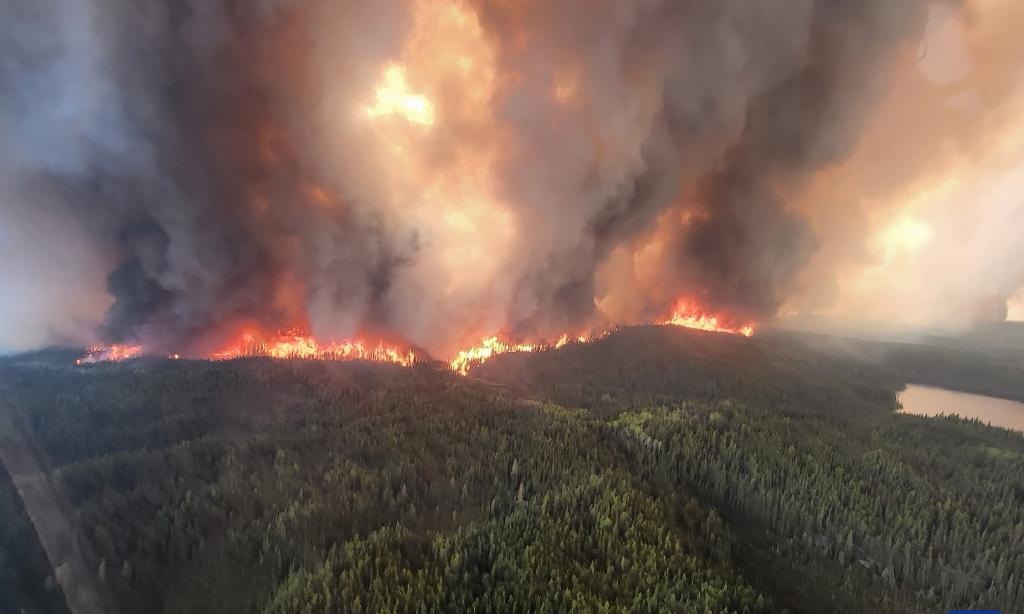Wildfire smoke has triggered air quality alerts in six provinces and territories across Canada, according to Environment Canada’s weather information published on Friday.
The agency issued air quality alerts in two neighbouring provinces, Saskatchewan and Manitoba, where states of emergency were declared one day apart.
Saskatchewan Premier Scott Moe declared a 30-day provincial state of emergency on Thursday, stating that at least 15 communities, mostly in the northern region, have been evacuated. Over 40 structures have been destroyed, he added.
His Manitoban counterpart, Wab Kinew, declared a state of emergency on Wednesday and issued mandatory evacuation orders for about 17,000 people, Xinhua news agency reported. “Smoke is causing very poor air quality and reduced visibility. As smoke levels increase, health risks increase,” Environment Canada warned.
“Limit time outdoors. Consider reducing or rescheduling outdoor sports, activities, and events,” it added, urging those in affected areas to keep windows and doors closed, use air filters indoors, and wear a mask when outside.
Warm and dry conditions continue to support wildfire activity as the weekend approaches. The smoke is expected to linger for a prolonged period near the source region of the fires.
Earlier this week, Manitoba — one of Canada’s three Prairie Provinces — declared a state of emergency due to extreme wildfire conditions and threats.
Premier Wab Kinew said in a news release that the declaration was based on recommendations from Manitoba’s wildfire and emergency management officials.
“With the wildfires in northern Manitoba intensifying, our government has triggered a provincewide state of emergency to help us through this crisis,” said Kinew.
The city of Flin Flon, as well as the First Nations of Pimicikamak and Mathias Colomb, also issued mandatory evacuation orders affecting about 17,000 people. All residents and visitors were instructed to evacuate the communities as soon as possible before midnight.
“This is the largest evacuation in many Manitobans’ living memory, and it will require significant resources and cooperation from all levels of government,” Kinew said.
The premier noted that he had spoken with Canadian Prime Minister Mark Carney and requested the support of the Canadian Armed Forces in transporting evacuees.
He added that the majority of evacuees would be relocated to the provincial capital, Winnipeg, and housed at large facilities such as soccer fields and arenas.
The state of emergency is initially in effect for 30 days and may be extended if necessary. This measure ensures federal, provincial, and local resources can be coordinated effectively to protect Manitobans, Kinew noted.
IANS










